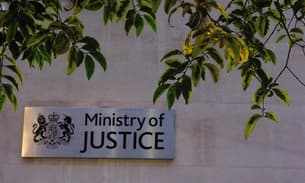
New banking scandal could cost savers billions
Culture of greed? London’s financial sector under the spotlight
Banking chiefs last month apologised for rigging the world’s $5.2tn foreign exchanges. They blamed a relatively small number of rogue traders saying they brought disgrace to the financial services industry.
But a recent devastating report by city watchdog, the Financial Conduct Authority (FCA) suggested the City could be over-charging pension funds and other investors to the tune of tens of billions of pounds through arguably the most basic financial services function: executing the buying and selling of shares, bonds and foreign exchange.
Last July, the FCA surveyed 36 banks, wealth management firms and inter-dealer brokers to establish whether they had adequate policies and compliance checks in place to give reasonable safeguards that clients’ orders were being executed in a timely, fair and efficient fashion.
The FCA’s probe into so-called “order execution” found widespread failure to get the best deal for clients through lax compliance, lack of appropriate management oversight and, on occasion, rule breaking.
Enormous cost
Under FCA rules, all City firms have an obligation to provide clients with “best execution”. Firms must ensure that, taking into account the size of the deal and the market conditions, a trade is done at the best price, as speedily as possible and at the lowest cost in terms of commission paid.
But the Best Execution and Payment for Order Flow report suggested most banks, brokers and wealth management firms were failing on their obligations to clients – in many cases ordinary pension fund holders.
The cost to investors – pension funds, insurance companies and other savers – could be enormous. The FCA stated: “Given the scale of assets under management in the UK, how firms perform on best execution could have a significant impact on investor returns”.
To give an indication of the impact, the FCA calculates that over a 30 year period investors would be £37.5 billion better off if the costs of trading were reduced by just one hundredth of 1%.
On foreign exchange markets alone, analysis by New Change FX, a company that helps asset managers reduce the costs of transactions in global currency markets suggest that miniscule mark ups in the costs of transactions by banks and brokers could cost Britain’s 20.7 million pension holders £7.5bn every year: that’s £300 per pension holder each year according to New Change FX.
New city scandal
The roots of what could turn into a new episode of never ending City scandals go back to last February when the FCA published a thematic review into how so-called transition managers dealt with orders.
Transition managers carry out fundamental changes in investment strategy on behalf of major investors such as pension or sovereign wealth funds.
If, for example, a fund wants to sell a huge portfolio of European equities believing it makes better sense to move into US bonds, transition managers will carry out the required shift in strategy.
Just 13 firms dominate a market which oversees assets worth £165bn each year according to the FCA.
Banks make their money by charging a small commission on transactions. Sometimes a fixed fee is paid. Charging structures are supposed to be clearly disclosed to the client.
But last February, the FCA’s Transition Management (TM) Review found:
- “instances of poorly worded and potentially misleading marketing materials”;
- “some TM desks had limited contact with their control functions or senior management”; and
- reports confirming the execution of trades to clients were often made by the people who carried out the transitions “which may affect the degree of reliance that can be placed on such reports”.
These hidden costs may be a major reason UK pensions holders actually lost money once the savings were adjusted for inflation in the 12 years to 2012. Recent research by the European Federation of Financial Services Users showed UK pensions saw real net returns of minus 0.7%.
Culture
Graham Dixon is a specialist transition management adviser at Inalytics, a firm which helps asset owners ensure they are not the victim of over-charging. He believes a drive by regulators to lower transactions costs may have proved counter-productive if some traders have found hidden ways of bumping up their profits.
“Actual trading costs have not fallen as much as generally thought but transparency certainly has,” he says. “The City appears to have a cultural problem with transparency and disclosure.”
There are government plans to automatically enrol nine million employees into workplace pension schemes over the next five years. Catherine Howarth, chief executive of ShareAction, a charity that promotes responsible investment by pension funds and fund managers, is worried this will increase the potential for the lowest paid people in the country to lose money they cannot afford to unscrupulous City traders.
“It’s more important than ever to protect the public against unscrupulous transaction costs that eat into the value of their modest pension pots,” she said.
“There’s no way ordinary people can be expected to understand these scams but the people running their pension funds ought to be fully on the ball about it, and it’s far from clear that’s always the case”.
As millions of people are about to be automatically enrolled into a workplace pension schemes at a time when the reputation of City professionals is low, perhaps now would be a good time to ensure some bankers, brokers and traders no longer execute transactions in a way that means ordinary investors get fleeced.
The Bureau understands the City of London Police is currently investigating a case in which clients of a bank are said to have lost millions of pounds. Three bankers have been arrested and released on police bail.
If you have a comment on this article or know of traders who over-charge clients when they execute orders, email [email protected]




